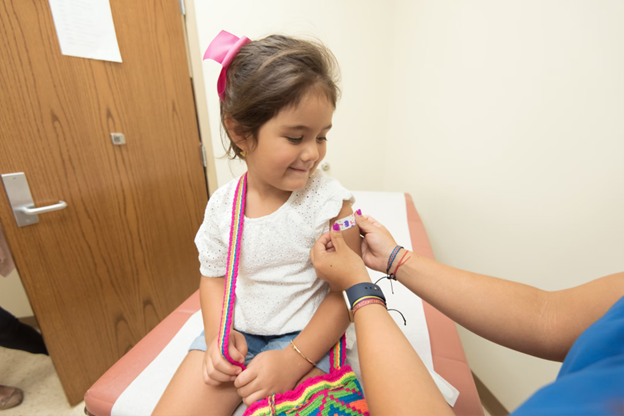In the journey of parenting, there are countless decisions to be made, from the moment you welcome your little one into the world and onward. Amidst the chaos of midnight feedings and diaper changes, one crucial consideration often flies under the radar – health screenings for children. While we’re familiar with doctor visits and vaccinations, health screenings are a topic that deserves closer attention. Let’s explore the significance of these assessments in ensuring your child’s well-being.
A Preventive Approach to Pediatric Care
From the very beginning, health screenings for children establish a preventive approach to pediatric care. They’re like the early-warning system for potential health issues. Just as your car gets regular check-ups to prevent breakdowns, health screenings detect concerns before they become major problems. These assessments cover a wide range of aspects, from physical health to developmental milestones, providing parents with a comprehensive view of their child’s overall well-being.
Early Detection of Developmental Delays
Developmental screenings, a significant component of child health assessments, focus on tracking your child’s developmental milestones. These regular health screenings are vital because they allow healthcare professionals to detect any delays in your child’s development early on. Whether it’s speech, motor skills, or social interaction, identifying these delays at an early age provides a head start for interventions and therapies that can be more effective the sooner they’re implemented.
Identifying Risk Factors and Genetic Conditions
Health screenings for children also encompass genetic screenings that can be particularly valuable if there’s a family history of certain conditions. Various genetic tests can identify potential risk factors or underlying genetic conditions that may not be immediately apparent. Timely detection can lead to more effective management or intervention plans.
A Baseline for Future Comparisons
Health screenings for children often serve as a baseline for future comparisons. This means that as your child grows, you can track their health progress with their earlier assessments. Such a history allows for better monitoring of any developing issues and ensures that potential concerns are not overlooked.
Mental Health and Emotional Well-being
Childhood isn’t just about physical health; it’s also about nurturing mental health and emotional well-being. Health screenings can encompass evaluations for emotional and psychological well-being. This is increasingly important in today’s world, where children may face various stressors that can impact their mental health. Identifying concerns early can be instrumental in providing the support and resources they need.
Nutrition and Lifestyle Guidance
As your child grows, their nutritional needs and lifestyle requirements change. Health screenings offer an opportunity for healthcare professionals to guide diet and physical activity. These recommendations can be tailored to your child’s specific needs and ensure that they grow up with a healthy relationship with food and exercise.
Vaccination and Immunization Updates
Vaccinations are a cornerstone of child health, and screenings often include a review of your child’s vaccination schedule. It’s not just about staying up-to-date with shots; it’s also about ensuring that the vaccines are effective and that your child is well-protected from preventable diseases.
Peace of Mind for Parents
Above all, health screenings for children provide peace of mind for parents. Parenting is a journey filled with uncertainty, and knowing that you’re taking proactive steps to safeguard your child’s health can be reassuring. It’s about being the best advocate for your child, ensuring they have every opportunity to grow up happy, healthy, and thriving.

In conclusion, health screenings for children are a fundamental aspect of responsible parenting. These assessments offer a wealth of benefits, from early detection of developmental delays to a comprehensive understanding of your child’s physical and mental health. By incorporating these screenings into your child’s healthcare routine, you’re taking a significant step towards providing them with the best possible start in life. After all, nothing is more precious than the health and well-being of your child.

